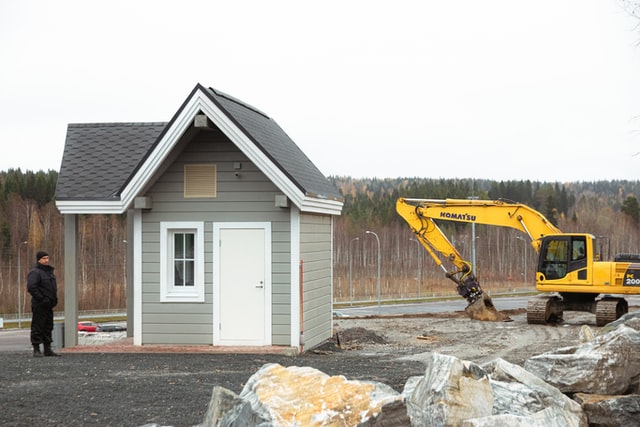How Much Does It Cost To Demolish a House?

Found a great location for a house or building? While you might be ready to celebrate the new plot of land, there might be something standing in your way—an existing building. As unusual as it may seem, the existing building might not suit your needs in any way, which means you might want to get rid of it. If home renovation or repairs aren’t an option, rebuilding would be the better choice. This is where demolition comes in. It’s an essential process in construction, and it can pave the way for a more productive new building or other use for the land.
One of the first things that come to mind when discussing construction projects is the cost, and this is also the case in demolition. While it may seem like a simple and straightforward process, the cost of it may vary depending on a few factors. Here, we’ll cover some of the basics that will help you estimate the cost of a demolition project.
Size of the house
One of the most important factors that influence demolition costs is the size of the house. It goes without saying that the bigger the building—the higher the cost. Some contractors charge a flat rate for every square meter, while others use a different system. It all depends on the contractors involved, but the size is crucial.
The costs tend to vary from contractor to contractor, but you can expect a price of around 40$ per square meter on average. Now, there may be numerous other factors that influence the cost independent of the size alone.
Building accessibility
A house in the suburbs and one in the middle of nowhere will have different demolition costs. Depending on the location and accessibility of the location, you may have to pay more. The contractors need to be able to reach the house to begin demolition. If the terrain or area can influence the project, this will impact the price.
Distance is a key part of this calculation. The further that contractors have to travel and transport materials, the higher the cost of the operation. Disposing of materials can be more difficult and costly if there are large distances involved as well.
Building materials
The materials that make up the house influence the cost as well. Depending on the type of building involved, you may need special measures to demolish it. Some materials are tougher than others, and there are those that should be recycled or repurposed in some way.
A good rule of thumb to follow is that timber houses are generally cheaper to demolish, while brick and concrete tend to be more expensive. This makes sense, as the latter materials are heavier and may require special machinery for demolition. It’s worth noting that the recyclability of timber also affects the demolition price positively, as you can make some money back from the process.
Extra structures and details
As we’ve mentioned, anything that can impact the demolition process itself will almost certainly increase the overall costs. This applies to extra structures surrounding the house, as well as any additions that may require special attention. Sheds, pools, trees, and large shrubs will inevitably slow down the process, as they must be tackled delicately.
However, it can be difficult to gauge the cost of a demolition project if you have multiple structures or details that need to be handled carefully. Consulting your chosen demolition company and requesting a quote for the project would be the best way to determine the rough cost of the operation. Some may be able to give you an exact figure depending on the circumstances, while others can give you an estimate that will suit your needs.
Hazardous waste
Houses built in the middle of the last century can have some hazardous materials that must be carefully removed during demolition. Notably, these include lead and asbestos. If the house contains asbestos, you can expect the price of demolition to skyrocket, as removal requires specialist assistance and specific machinery.
Mould is another issue that can impact the overall cost of the project. Not only does it slow down the process by requiring more safety measures, but it, as is the case with asbestos, requires specialist removers. Any combination of hazardous waste requires delicate handling, as it must be taken care of in accordance with safety regulations.
Conclusion
Demolition is an incredibly complex process that requires extensive preparation and logistics. Because of this, it can be difficult to estimate the cost of a demolition project right away. In many situations, the contractors will have to assess the building site and everything that it includes before they can offer an accurate quote. If you’re looking to demolish a house, you must take everything into consideration. And inform your contractors as best you can. Even if it gets expensive, this is only because of elements that are absolutely necessary for safe and proper demolition.




